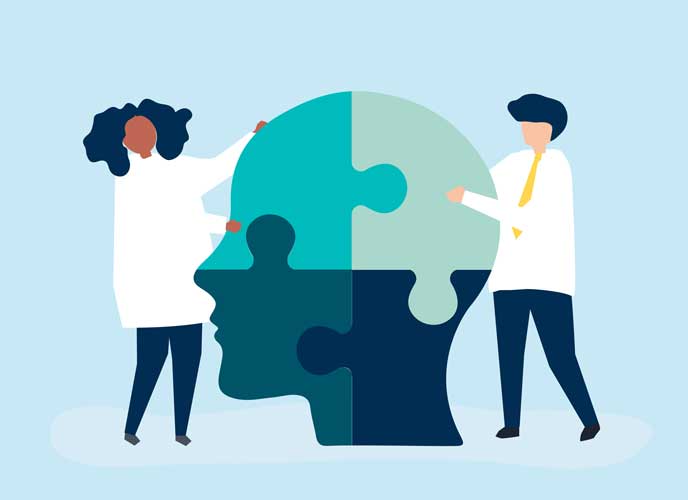Psychological Effects of COVID-19 Underscore Importance of Mental Health Services

A recent report in the International Journal of Medicine confirms that social isolation and health-related anxieties caused by COVID-19 are having profound psychological consequences. Despite the intuitive correlation, many researchers have previously had to rely solely on subjective survey responses to gauge mental health during the initial stages of outbreak; but as the virus continues to spread, there has been more time and resources dedicated to analyzing suicide rates, hotline calls, overdoses and other indicators of mental health crises.
Historical data can also offer a glimpse into the societal responses to past epidemics, pandemics and economic downturns. Research has shown that the Spanish flu was correlated with an increase in suicides, particularly in response to heightened social isolation and public health fears. During the SARS outbreak in the early 2000s, suicide rates spiked among people aged 65 and older, as elderly populations are more at risk for the negative consequences of loneliness and dwindling support systems.
In addition, economic downturns are unsurprising culprits of mental health crises. According to the paper, multiple studies have shown that unemployment rate increases were correlated with higher instances of depression and substance use disorders. Suicide rates in the US increased during the Great Depression as well.
While it’s much too soon to assess the full impact of COVID-19, data shows that we are following a similar trend as in the past. Calls to suicide prevention hotlines have increased, just like they did during the 2008 recession. And it’s not just a national concern - many suicides that were determined to be COVID related have been reported throughout Europe and Asia.
Spikes in drug overdoses are also causing alarm and putting added pressure on healthcare systems. Experts state that not only are social and economic factors at play, but in some instances, substance abuse funding has been diverted for necessary COVID-related efforts. A recent brief by the American Medical Association states that they’re “greatly concerned by an increasing number of reports from national, state and local media suggesting increases in opioid-related mortality—particularly from illicitly manufactured fentanyl and fentanyl analogs.”
Coverage of overdoses and suicidal tendencies show more extreme cases, but even those without serious mental health diagnoses are at risk for worsening symptoms of pre-existing medical conditions, such as eczema. A recent NPR article noted that psychiatrists and mental health workers have noticed an uptick in physical symptoms due to pandemic-related stress. They run the gamut from eczema flare-ups to stomach problems and even intense jaw clenching resulting in severe pain.
But all hope is not lost. For those with substance abuse disorders, medication-assisted treatments (MAT) are becoming more commonplace- the AMA recently noted its support of the government’s decision to expand use of drugs such as methadone and buprenorphine for these purposes- and the loosening of insurance coverage restrictions for telehealth, including telepsychiatry, can also play a role in ensuring patients’ access to behavioral health services during the pandemic. Beyond regulatory relaxations, though, much work remains. From marketing campaigns to individual check-ins amongst community members, continuous outreach remains imperative.